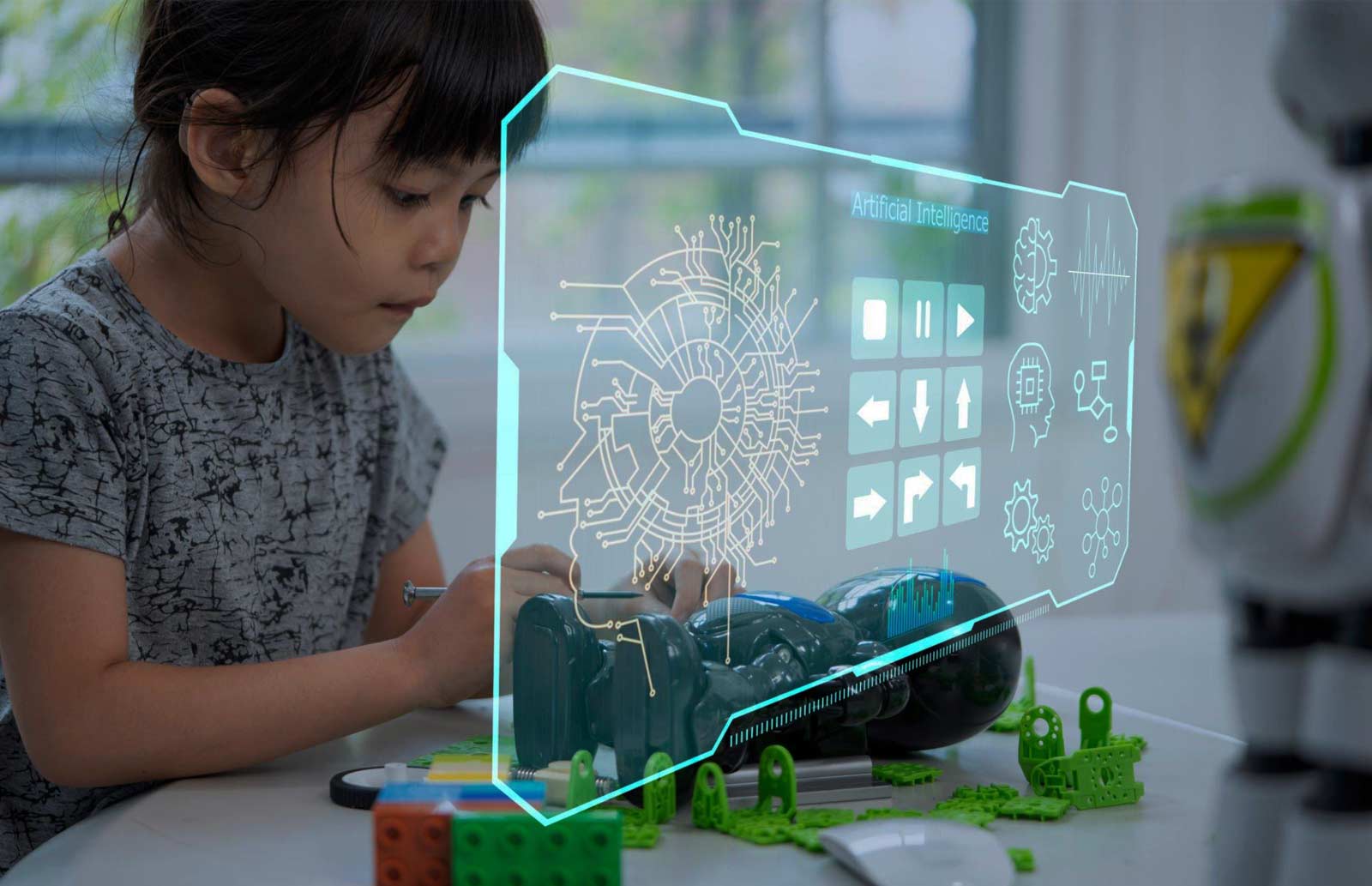In recent years, Artificial Intelligence (AI) has made significant inroads into various industries, and one sector where it’s creating a profound impact is education. AI is poised to revolutionize how we learn, making education more personalized, accessible, and effective. In this blog post, we’ll explore how AI is shaping the future of learning and what it means for students, educators, and institutions.

1. Personalized Learning Paths
One of the most compelling applications of AI in education is personalized learning. AI algorithms analyze individual student data, including their learning pace, strengths, and weaknesses. With this information, AI can tailor educational content to suit each student’s needs. Whether it’s adjusting the difficulty of assignments or suggesting additional resources, AI ensures that learning is customized, making it more engaging and effective.
2. Intelligent Tutoring Systems
AI-powered intelligent tutoring systems act as virtual mentors for students. These systems can provide immediate feedback, answer questions, and offer explanations for various subjects. They adapt to a student’s progress and can identify areas where additional support is required, helping learners grasp difficult concepts more easily.
3. Enhanced Administrative Efficiency
Beyond the classroom, AI streamlines administrative tasks for educators and institutions. Chatbots, for instance, can handle routine inquiries from students, freeing up educators to focus on teaching. Additionally, AI assists in administrative tasks like scheduling, grading, and data analysis, reducing the administrative burden on teachers and staff.
4. Predictive Analytics
AI’s data analysis capabilities are invaluable in predicting student outcomes. By analyzing historical data, AI can identify at-risk students who may be struggling academically. This early intervention allows institutions to provide timely support, improving retention rates and student success.
5. Accessibility and Inclusivity
AI also plays a crucial role in making education more accessible and inclusive. Text-to-speech and speech-to-text technologies aid students with disabilities. Language translation tools break down language barriers, allowing students from diverse backgrounds to access educational resources.
6. Lifelong Learning
AI in education isn’t limited to K-12 or higher education. It extends to lifelong learning and professional development. AI-driven platforms can recommend courses and resources to professionals based on their career goals and industry trends, ensuring that learning remains a lifelong pursuit.
7. Ethical Considerations
While AI in education offers immense potential, it also raises ethical concerns. Data privacy, algorithmic bias, and the role of human educators in the learning process are critical issues that need careful consideration and regulation.
In conclusion, AI is fundamentally transforming education, making it more adaptive, engaging, and accessible. As AI continues to evolve, its role in shaping the future of learning will become increasingly prominent. Embracing AI in education means preparing students for a future where technology and learning go hand in hand, ensuring that they are equipped with the skills they need to thrive in a rapidly changing world.



